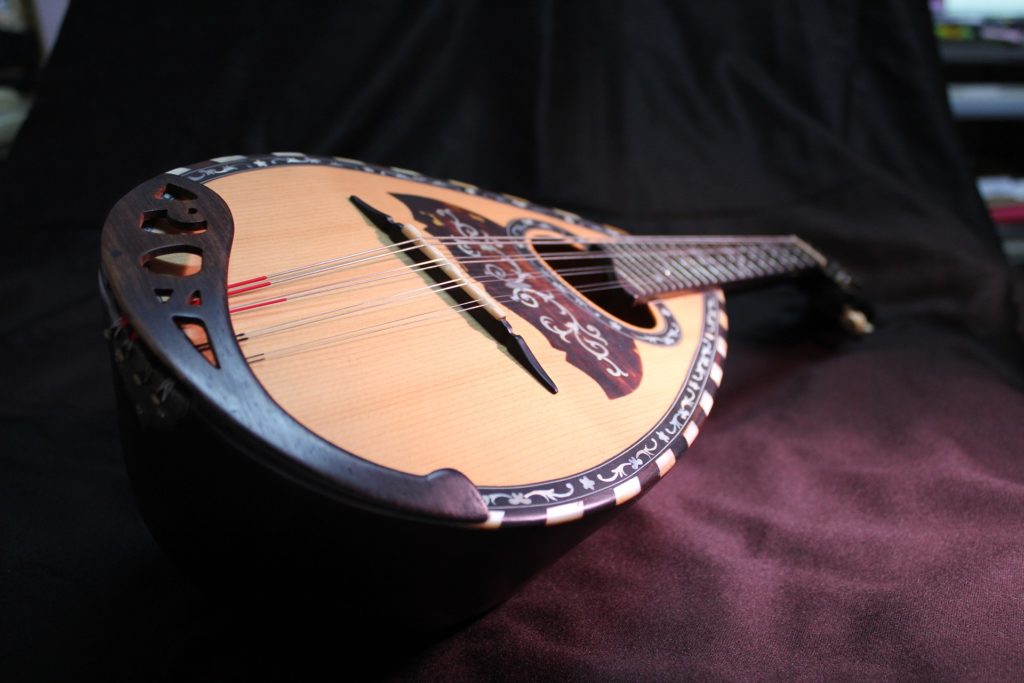Mandolin – Very Slow to Very Fast Playing to Refine Technique (Musicians)(Psychology)(Pain)(Strain)(Injuries)(Posture)(Alexander Technique)(Albuquerque)
This ebook, An Alexander Technique Approach to Mandolin Technique, is published on this website in a PDF format. It is very detailed and practical, and it will give you the physical tools you need to take the limits off of your ability to create the accurate mandolin technique you want without sacrificing your body.
This ebook is also for sale on all AMAZON websites in a KINDLE format.
Located in Albuquerque, New Mexico, U.S.A. (MOVEMENT THERAPY)
Is playing a mandolin piece very slowly, below tempo, a form of making mistakes? This is what many mandolin players believe, and most mandolin players believe mistakes should be avoided at all costs. I’ve found that almost all mandolin players believe that a mistake made is a mistake learned. This is the central belief of mandolin players that makes for fear based playing. “Thou shalt avoid mistakes at all costs!”
I do not believe a mistake made, and recognized as such as it is being played is a wrong note learned, unless this is believed. What we believe, true or not, is self-fulfilling. In other words, if you believe every mistake made is learned, you will make that same mistake over and over again to prove you are right. Humans love to be right!
So, if you accept that a missed note on the mandolin recognized is not a mistake learned, then slow practice is not playing a whole piece wrong.
What is the physical difference between playing slowly and quickly? I ask a mandolin player to play a two octave scale and to do so very slowly, and to pay close attention to what the left hand is doing. I ask her to really experience her left hand fingers and their relationship to each other, as she plays the scale at a very slow tempo, ascending and descending nonstop. As she continues to play the scale, I ask her to gradually pick up the tempo, continuing to pay close attention to her hand and fingers. I ask her to get faster and faster until she is going as fast as she can.
I then stop her, and ask her if she was able to feel the place where “slow” playing became “fast” playing, and what the difference is. When she says no, then we do this a few more times, seeing if she can figure out the difference between the two. So far, no mandolin player has come up with the answer on his or her own.
Here is the answer. At a certain tempo, for the mandolin player to continue to get faster and faster, the fingers that play next must already be on their way down to the neck and through the string. You cannot move faster than your reflexes allow you to move.
Ex: If you touch a hot plate accidentally, you will pull your hand away reflexively, but you cannot get off the hot plate any faster than your reflexes will allow you. Even if you touch it consciously and attempt to get off it more quickly, you still can’t make the muscles twitch any faster than they can.
If you are playing a scale, and keeping your fingers as close to the strings as possible and articulating each finger 100% independently, in other words you do not move the next finger until the previous note has been played, you will not be able to play at your potential tempo. You simply cannot will your fingers to move faster than your reflexes can move them.
But, if the next playing fingers are already on the way down to the neck and through the string, then the mandolin, not your fingers will determine your ultimate speed.
If your mandolin technique does break down, then what are you doing wrong? You may discover your technique has flaws in it that even flowing fingers can’t solve, so you need to troubleshoot your mandolin technique by yourself, with a mandolin teacher, with an Alexander Technique teacher or all three.
So, perform with love and an accurate sense of what it really takes to physically play the mandolin, and who knows how good you’ll become.
